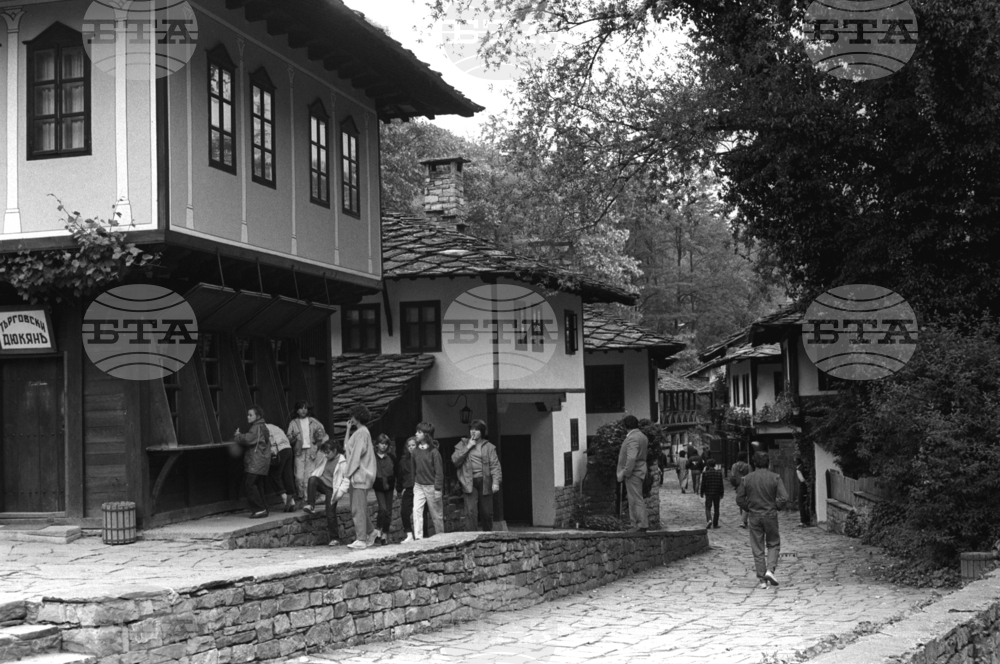site.btaEtar Museum Has Kept Bulgaria's Spirit Alive for 60 Years


The Etar Regional Ethnographic Open Air Museum - Bulgaria's only outdoor museum of its kind of the Skansen type - turned 60 on September 7.
The idea of the founder, Lazar Donkov of Gabrovo, was to set up a functioning open-air museum, so that the past would come to life and raise a more in-depth awareness of the precious national treasures that are worth preserving.
At first, an existing primitive water-mill dating from the 1780s and two fulling mills on the River Sivek (a tributary to the Yantra River) were restored in 1963, and then another water mill and a cutlery workshop were moved from nearby rural areas.
The site opened to the public as an ethnographic museum park on September 7, 1964. It was gradually augmented by houses (originals, transferred from Gabrovo and villages in the area, and replicas), handicraft workshops and facilities showcasing the authentic trades, manufacturing techniques, lifestyle and culture of Bulgarians living in the Central Balkan Range between the late 18th and the early 20th centuries. There is also a clocktower and a church.
The name Etar (the ancient name of the Yantra River) was chosen as an indication of the vital importance of water power for local industries.
The staff of the museum has grown from two in 1965 to close to 70 now, specializing in research, public relations and logistical support.
During its 60 years, Etar has established itself as a centre for the study of the traditional culture of the Balkan people from pre-industrial to modern times.
The open-air museum is a magnet for cultural tourism. Admissions totalled 172,389 in 2023, up from almost 135,000 in 2003 but down from the 300,000-plus in 1974 and the record 550,000 in 1981.
The museum boasts Bulgaria's only collection of operational water-powered manufacturing facilities with all original components: two water-mills, a tumble washer, two fulling mills, a saw-mill, a braid-making workshop, two lathes, and a grindstone. They were restored and conserved in 2023 at the cost of nearly BGN 900,000, with financial support from Operational Programme Regions in Growth 2014-2020. Authentic materials and methods were used in the process.
In acknowledgment of its achievements in this field, Etar was admitted to the International Molinology Society in the autumn of 2022. Molinology is the study of mills and other similar devices which use energy for mechanical purposes such as grinding, fulling or sawing.
The 16 houses lining Craftsman Street feature small ground-floor workshops doubling as retail outlets. There, visitors can watch potters, woodcarvers, coppersmiths, silversmiths, furriers, weavers, iconographers and other artisans at work, using 150-year-old techniques and machines to match. Delicious pastries and sweets can be tried in a small confectionery.
Hristo Marinov, a master making rugs, bags and other products of goat's hair at the Etar Museum, was included as a Living Human Treasure in the 2022 National Representative List of Intangible Cultural Heritage.
The Etar Museum is open all year round and hosts various cultural events: international research conferences and symposia, crafts fairs, contests and competitions, exhibitions and demonstrations, and children's events and educational projects, plus celebrations of folk holidays. Examples include an International Fair of Traditional Crafts, the KEVIS International Symposium for Land Art and Kinetic Art, a Scarecrow National Contest, a Feast of Pestil (damson cheese), a Fair of Museum Aids, and the Ziva Award Ceremony for Best Slavic Museum and Best Heritage Site in Slavic countries of the Forum of Slavic Cultures.
Etar is part of the Bulgarian National Council of the International Council of Museums (ICOM), the Association of European Open-Air Museums, the Bulgarian Museums Association (which gave its 2023 Museum of the Year Award to Etar for its Museum for Creative Cultural Tourism Project), and the partnership network of the Michelangelo Foundation for Creativity and Craftsmanship. Among its long-time partners, the museum lists the non-governmental Devetaki Plateau Association, the Meshtra - Traditional Knowledge and Crafts Association, the Central Balkan Range Regional Association of Municipalities, the National Academy of Art in Sofia, and the Dimitrie Gusti National Village Museum in Romania.
In November 2022 at the BTA National Press Club in Gabrovo, BTA Director General Kiril Valchev and Prof. Svetla Dimitrova, Director of the Etar Regional Ethnographic Open Air Museum, signed a memorandum of cooperation between the national news agency and the museum.
/LG/
Additional
news.modal.image.header
news.modal.image.text
news.modal.download.header
news.modal.download.text
news.modal.header
news.modal.text
